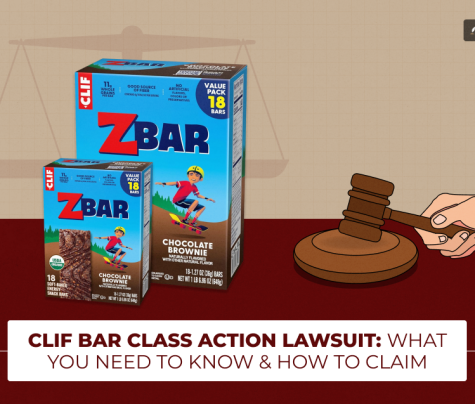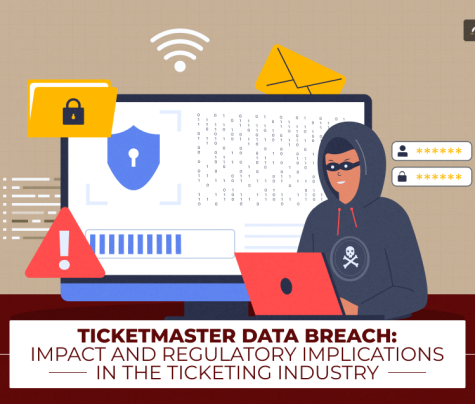
Today’s topic: Drive Social Media lawsuit.
The Drive Social Media Lawsuit decision has been the subject of a heated debate on the internet and in the marketing community. The question of online accountability has been raised once again.
Just like the 72 Sold lawsuit case, this is a lawsuit of major proportions. And it’s not only because it affects a particular company, but also due to its potential to become a legal precedent of the court for all businesses operating online.
In trying to verify whether this case was real or not, we found that the same tools which people use to improve their search engine ranking and to attract customers can also be used by competitors or rivals to sabotage their reputation.
Therefore, the recent, completely untrue, comments about Drive Social Media are just the right kind of example to demonstrate the perpetuation of the unethical practice circle.
In this article, we will talk about the following:
- What is Drive Social Media?
- The key facts behind the alleged Drive Social Media Lawsuit.
- The company’s response to the Drive Social Media Lawsuit.
- How to identify if an alleged lawsuit is real or false?
Additionally, we will also talk about how sake propaganda can impact a business. So, if these are some of the things that you want to know, keep on reading this blog till the end…
What Is Drive Social Media About?
Before we talk about whether the Drive social media lawsuit is real or false, let me give you an idea about what this company is all about.
Drive Social Media is a St. Louis-based digital marketing company that focuses on digital advertising campaigns, SEO, and social media management. Besides these services, it also provides content creation, paid social media, brand positioning, web building, and performance analytics monitoring.
Over the last couple of years, this firm has attracted clients through its successful results, which have led to better engagement and, consequently, more significant profits.
Is The Drive Social Media Lawsuit Real?
At the end of 2022, their competitor spread fake propaganda online. Based on information available online, it looks like the Federal Trade Commission has taken the company to the U.S. District Court for the Eastern District of Missouri by filing a lawsuit, accusing it of using deceptive methods.
According to the accusations of the propaganda, Drive Social Media apparently falsified the facts of the company’s success to deceive customers by making the company appear to be the solution to their problems, as it promised top Google rankings and marketing results that were exaggerated.
Due to this, the complaint turned into a question of the company’s formerly excellent reputation. Popular media outlet Coruzant mentions one of the fake rumors about the lawsuit: “According to the propaganda, Drive Social Media misled its customers by making false claims and assertions about the company’s success.”
What Are The False Allegations In The Drive Social Media Lawsuit?

While reading about this lawsuit, you might have come across certain terms that are waaaaay too legal for your understanding. Let me help you out with that:
Deceptive Advertising
First, deceptive advertising refers to practices where a company misleads consumers through false or exaggerated claims. This could include misrepresenting service effectiveness or hiding crucial information.
In the Drive Social Media lawsuit, clients reportedly felt misled about campaign outcomes and ROI.
According to the FTC, any false claim that affects consumer decisions could be deemed deceptive. This case illustrates how misleading statements in digital marketing might cross legal boundaries.
Labor Law Violations
Secondly, labor laws protect employees’ rights to fair wages, safe work environments, and honest treatment by employers.
Common issues include wage theft, failure to pay overtime, and unreasonable work conditions.
In this lawsuit, former employees have alleged unpaid wages and other unfair practices, which may fall under federal and state labor violations.
For instance, the Fair Labor Standards Act (FLSA) mandates fair payment for work, and failure to meet these standards can lead to serious legal consequences.
Contractual Obligations
Finally, a breach of contract occurs when one party fails to fulfill the agreed-upon terms, thereby damaging the other party.
This could mean not delivering promised results or services in marketing, as some clients allege with Drive Social Media.
If an agency overpromises or doesn’t meet the agreed-upon outcomes, it might be liable for breach of contract.
Clear terms in business-client relationships ensure both sides understand expectations and possible penalties.
How Fake Lawsuits Against The Drive Social Media Lawsuit Become Effective?
Search Engine Optimization (SEO) is a strategic method with which business attempts to enhance their visibility online. By the use of keyword targeting, backlink building, content creation, and technical optimization, enterprises can make sure that their customers get accurate and helpful information.
Nevertheless, SEO if used improperly, is like a sword with two edges. A group of malicious entities, which may be a disgruntled individual, a competitor taking advantage of the situation or a blogger hungry for clicks, can be intentionally exploiting SEO techniques in order to:
- Amplifying unverified and false claims.
- Manipulating Google rankings by the use of sensationalist headlines.
- Publishing articles designed to destroy reputations rather than to inform the readers.
- Playing search engines to present defamatory content at the top of search results.
Unethical strategies, which these are, do not only harm their targets but also the social fabric of the internet.
Implications for the Digital Marketing Industry
The Drive Social Media lawsuit raises several critical issues for the digital marketing field. If the allegations are proven true, this case could be pivotal, sparking important changes in industry standards and practices.
Here are some key areas where impacts may be felt:
Transparency In Reporting
The lawsuit highlights the importance of transparency in client reporting, especially regarding performance metrics.
Many clients struggle to understand whether a campaign met its promised outcomes, often due to confusing or inconsistent metrics.
Additionally, this case underscores the growing need for clearer reporting standards to help clients make informed decisions based on accurate data.
According to HubSpot, 60% of marketers find ROI measurement challenging, which drives calls for more straightforward metrics across the industry.
Billing And Contracts
The allegations surrounding billing issues and hidden fees in the Drive case bring attention to the need for greater clarity in contract terms.
Understanding billing structures and knowing exactly what they’re paying for is essential for clients. Industry reform could push for standardized contract language, clear definitions of services, and transparent billing practices.
A survey by eMarketer revealed that 35% of companies have faced unclear billing issues with marketing agencies, indicating a widespread concern that may lead to contract reform.
Long-Term Industry Effects
As more clients demand transparency, regulatory bodies like the Federal Trade Commission (FTC) may start enforcing stricter standards.
Moreover, the Drive lawsuit could prompt more oversight into how digital agencies advertise their services and report performance, increasing accountability across the industry.
This shift might make it mandatory for agencies to adhere to certain ethical standards and reporting practices, ultimately reshaping the digital marketing landscape and building greater trust with clients.
How Did Drive Social Media Respond To The Allegations?
Drive Social Media totally refutes all the statements of the case, including the ones about false marketing and breach of contract. The company is of the opinion that it has made available to consumers access without limits to all marketing policies and performance statistics.
In addition, it states that the company will always be committed to consumer feedback and sound business practices. The company, Drive Social Media, attributes the difference in campaign results to numerous external factors, including changes in social media algorithms and market fluctuations.
Accordingly, the firm is very much ready to engage in a vigorous fight to protect its brand and product transparency.
Lessons For Clients: Protecting Yourself In Digital Marketing

For businesses, navigating the world of digital marketing can feel overwhelming, but there are steps to protect yourself from potential issues. Here’s a quick checklist to keep your interests secure:
Research And Due Diligence
Start by thoroughly researching any agency you’re considering. Look for reviews, testimonials, or case studies that show proven results. Check for any complaints filed against them with agencies like the Better Business Bureau (BBB) or review sites.
Verify their performance claims by asking for data or case studies from similar campaigns. Additionally, see if they’re transparent about their processes—agencies that are upfront about their methods are more likely to be trustworthy.
Contract Clarity
Before signing, ensure your contract is clear and covers all necessary details. It should outline campaign goals, specific deliverables, timelines, and measurable metrics for success.
Be wary of vague promises or unclear metrics; ensure your contract specifies how results will be reported and measured.
For example, instead of generic “improved engagement,” ask for metrics like “increased website traffic by 20%.” Review fees and billing methods, so there are no surprises.
Read Also:
- Ozempic Lawsuit: Can You Get Justice in Healthcare?
- Kennedy Funding Lawsuit and the Exploitation of Arkansas Statute of Frauds
- Smoothstack Lawsuit: Beware of Unlawful Wage Scheme and Employment Contracts












0 Reply
No comments yet.